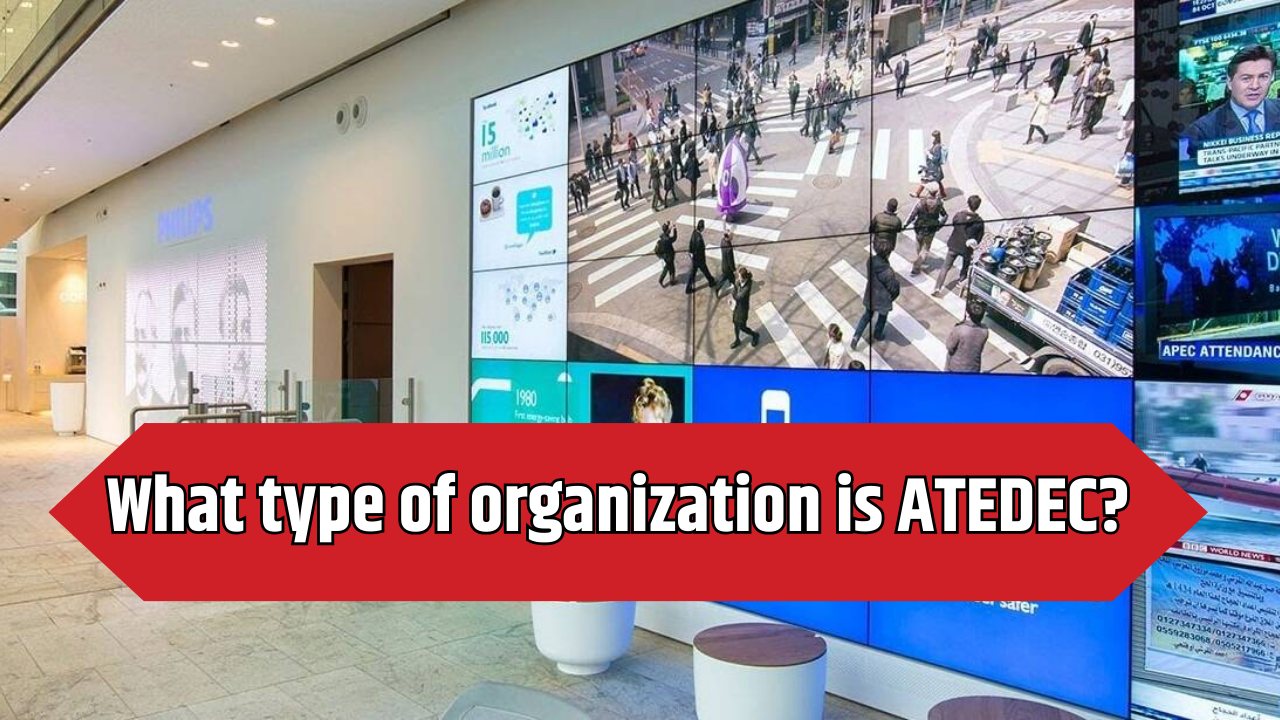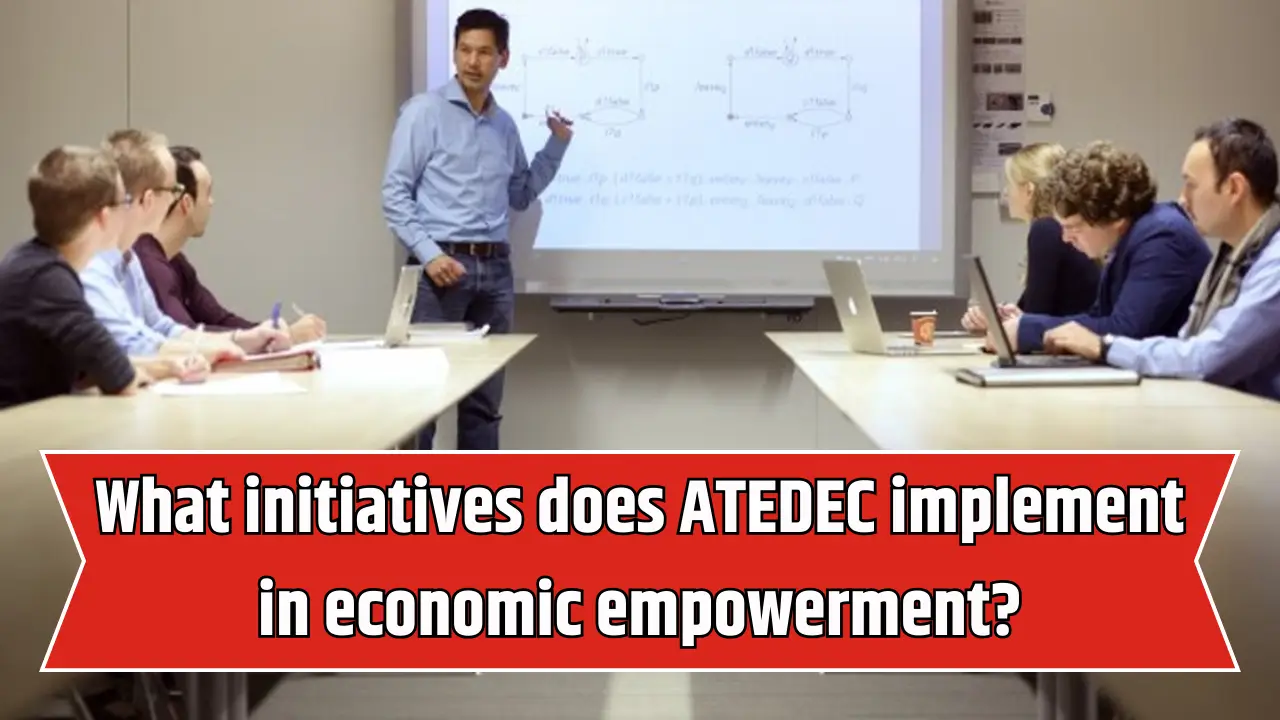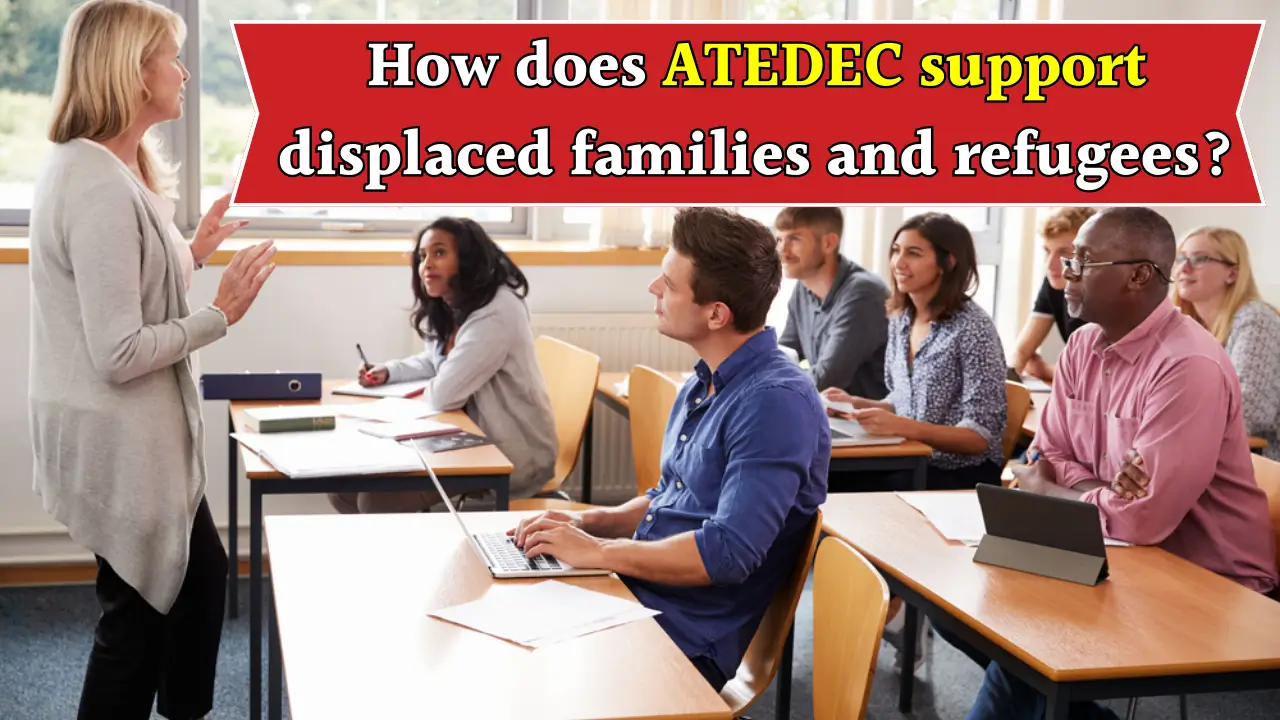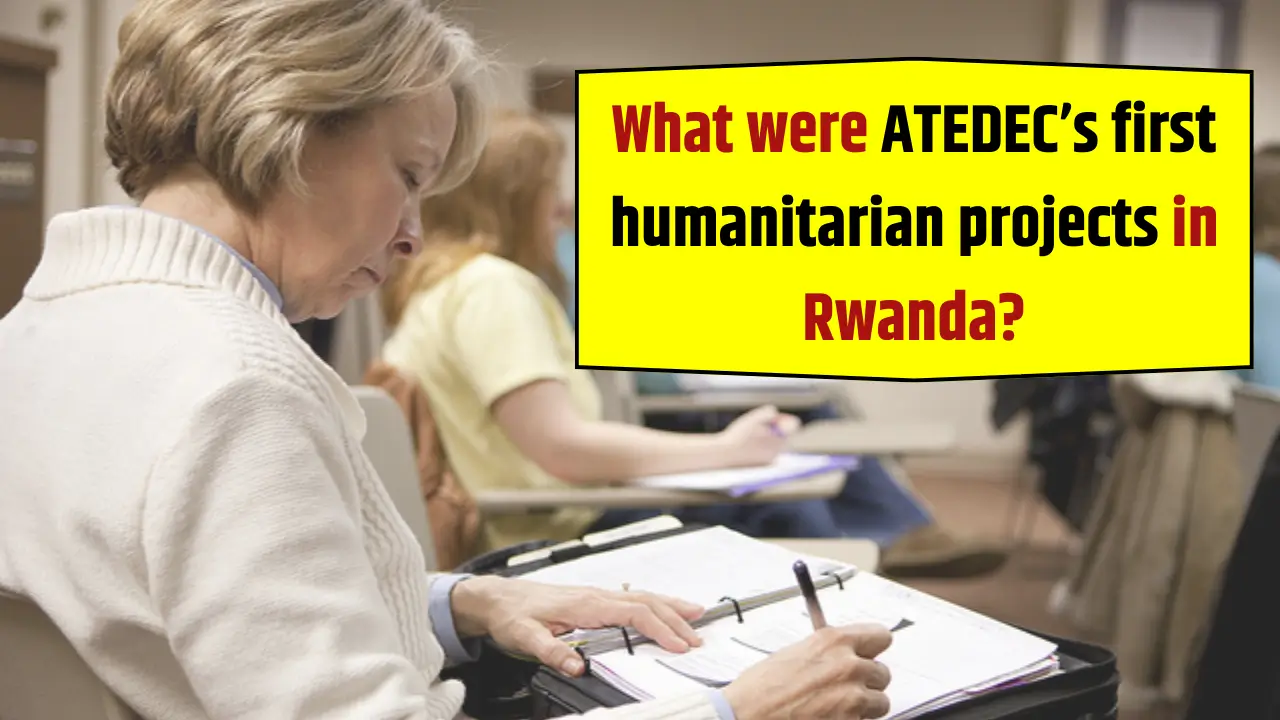ATEDEC, an acronym for Action Technique Pour Un Developpement Communautaire, is a prominent organization contributing to social and economic development, particularly in Rwanda. Since its inception in 1994-1995, ATEDEC has played an essential role in aiding rural communities, vulnerable populations, and cooperative enterprises towards sustainable development.
Understanding the type of organization ATEDEC is lends clarity on how it operates, its legal status, its mission, its funding sources, and its approach toward development.
This article explores ATEDEC’s classification as an organization, its legal framework, organizational structure, key sectors, and partnerships, and also highlights its latest developments as of 2025.
Classification of ATEDEC: Non-Governmental Organization (NGO)
ATEDEC as an NGO
- ATEDEC is officially categorized as a Non-Governmental Organization (NGO).
- It is registered and operates legally within the framework established by Rwandan law governing NGOs and civil society organizations.
- The organization focuses on public interest development, particularly sustainable rural development and social empowerment.
- Operates as an independent and not-for-profit entity, distinct from government institutions and for-profit businesses.
Legal and Regulatory Framework in Rwanda
- Under Rwanda’s Law No. 04/2012, NGOs like ATEDEC fall under national non-governmental organizations regulated by the Rwanda Governance Board.
- NGOs in Rwanda are divided into three main categories:
- Public Interest Organizations: Serving broader development goals for the general population.
- Common Interest Organizations: Focused on specific member benefits.
- Foundations: Collect and manage funds to support beneficiaries.
- ATEDEC is classified under the Public Interest Organization category, focusing on civil society, social welfare, gender empowerment, agriculture, and related sectors.
Organizational Mission and Vision
Vision Statement
ATEDEC’s vision emphasizes providing technical, financial, and educational solutions to empower vulnerable rural and urban communities, enabling them to be active participants in the country’s development process.
Mission Statement
The mission of ATEDEC is to deliver technical assistance to vulnerable groups that fosters self-reliance through active participation. The organization aims to improve economic, social, and environmental conditions in rural areas while preparing youth for employment and strengthening cooperatives.
Core Objectives and Areas of Operation
Focus Sectors
ATEDEC operates primarily in several interlinked sectors, reflecting a holistic approach to community development:
| Sector | Focus Area | Examples of Activities |
| Agriculture and Livelihoods | Enhancing rural income and food security | Training farmers, cooperative support, sustainable agriculture |
| Civil Society and Community Development | Empowering local groups and cooperatives | Community mobilization, participatory governance |
| Gender and Social Inclusion | Promoting women’s rights and gender equality | Women’s empowerment programs, GBV prevention |
| Health | HIV/AIDS, malaria, reproductive health awareness | Health education, prevention campaigns |
| Environment | Climate change adaptation and natural resource management | Reforestation, water resource management |
| Youth Development | Vocational training and employment readiness | Skills development, job placement initiatives |
Organizational Structure of ATEDEC
Governance
- ATEDEC is governed by a Board of Directors responsible for oversight, strategic direction, and ensuring accountability.
- The Executive Director oversees daily operations and program implementation, supported by specialized program managers.
Staffing
- Staff members include technical experts in agriculture, health, environment, social work, and training.
- Field officers operate in decentralized provincial teams directly engaging communities.
- Volunteers and community leaders complement staff efforts for grassroots reach.
Partnerships
- Works closely with government ministries (Local Government, Health, Agriculture).
- Receives funding and technical support from international donors such as the African Development Bank, Global Fund, and other development partners.
- Collaborates with local authorities, other NGOs, and community-based organizations.
Funding and Resources
- Primarily funded through grants from development agencies, international donors, and government partnerships.
- Some local fundraising and cooperative revenues supplement program costs.
- Operates with strict financial controls to ensure transparency and accountability.
- Uses resources to provide capacity building, technical assistance, and direct community support.
Key Characteristics of ATEDEC as an NGO
Independence
- Operates independently of government and political parties, focusing on community needs rather than profit or political interests.
Non-Profit Orientation
- All resources are reinvested into program delivery and organizational sustainability rather than distributed to shareholders.
Community-Centered
- Programs are designed based on local community needs assessments, with active participation of beneficiaries.
Multi-Sectoral Approach
- Recognizes that sustainable development requires addressing multiple social, economic, and environmental factors simultaneously.
Bulleted Highlights: What Defines ATEDEC?
- Registered NGO classified as a Public Interest Organization under Rwandan law.
- Established in 1995 to support post-genocide recovery and sustainable rural development.
- Works across sectors including agriculture, health, social inclusion, environment, and youth development.
- Structured with a Board of Directors and professional staff including field officers.
- Funded mainly by international development agencies and government partnerships.
- Emphasizes participatory community development and self-reliance.
- Promotes gender equity and vulnerable group empowerment.
- Strong monitoring, evaluation, and accountability practices.
- Collaborates extensively with government, donors, and civil society.
Major Programs and Initiatives Reflecting ATEDEC’s Organizational Type
Rural Livelihood and Cooperative Development
- Trains farmers in sustainable agricultural practices.
- Supports cooperative enterprises with business skills and market access.
- Works on food security and income diversification.
Health and Social Programs
- Implements HIV/AIDS awareness and prevention campaigns.
- Educates communities on malaria control and reproductive health.
- Supports gender-based violence prevention efforts.
Environmental Sustainability
- Facilitates reforestation projects and climate resilience training.
- Promotes water conservation and sanitation.
- Engages communities in natural resource management.
Youth Empowerment and Training
- Provides vocational training tailored to market needs.
- Supports job placement and entrepreneurship among disadvantaged youth.
- Addresses youth unemployment as a social development priority.
Latest Updates for ATEDEC in 2025
- Expanded digital training programs to equip youth with IT and vocational skills aligned with current job market demands.
- Launched climate smart agriculture pilot projects integrating technology for better yield and sustainability.
- Increased collaboration with Rwanda’s Ministry of Gender and Family Promotion to strengthen programs targeting women’s empowerment and gender-based violence reduction.
- Secured multi-year funding agreement with African Development Bank for rural water supply and sanitation infrastructure expansion.
- Rolled out community radio-based public health campaigns enhancing outreach in remote areas.
- Initiated disaster preparedness and resilience-building workshops in vulnerable rural districts.
- Implemented improved data management and digital monitoring systems to enhance transparency and impact measurement.
Table: Summary of ATEDEC’s Organization Type and Attributes
| Attribute | Description |
| Organization Type | National NGO (Public Interest Organization) |
| Founded | 1995 |
| Legal Framework | Registered under Rwanda Governance Board regulations |
| Mission | Sustainable rural and urban community development |
| Core Sectors | Agriculture, health, environment, youth, gender |
| Governance Structure | Board of Directors, Executive Director, professional staff |
| Funding Sources | International donors, government partnerships, grants |
| Geographic Focus | Rwanda, primarily Western Province and Kigali |
| Operational Approach | Participatory, community-centered, multi-sectoral |
| Legal Status | Non-profit, non-political, autonomous |
Conclusion
In conclusion, ATEDEC is a non-governmental organization (NGO) established in Rwanda with a mission to foster sustainable development through participatory community approaches.
It is classified as a public interest NGO under Rwandan law, emphasizing empowerment of vulnerable groups, cooperative development, and environmental sustainability. Its organizational structure, governance, and funding model align with international best practices for NGOs dedicated to social change.
With a multi-sectoral strategy, ATEDEC addresses complex community needs, including agriculture, health, gender, youth employment, and environment.
As of 2025, the organization continues to expand its reach and impact, adopting innovative digital and climate-smart solutions while strengthening partnerships at national and international levels.
Understanding the type of organization ATEDEC is helps appreciate its role as a vital development actor contributing significantly to Rwanda’s socio-economic progress.













